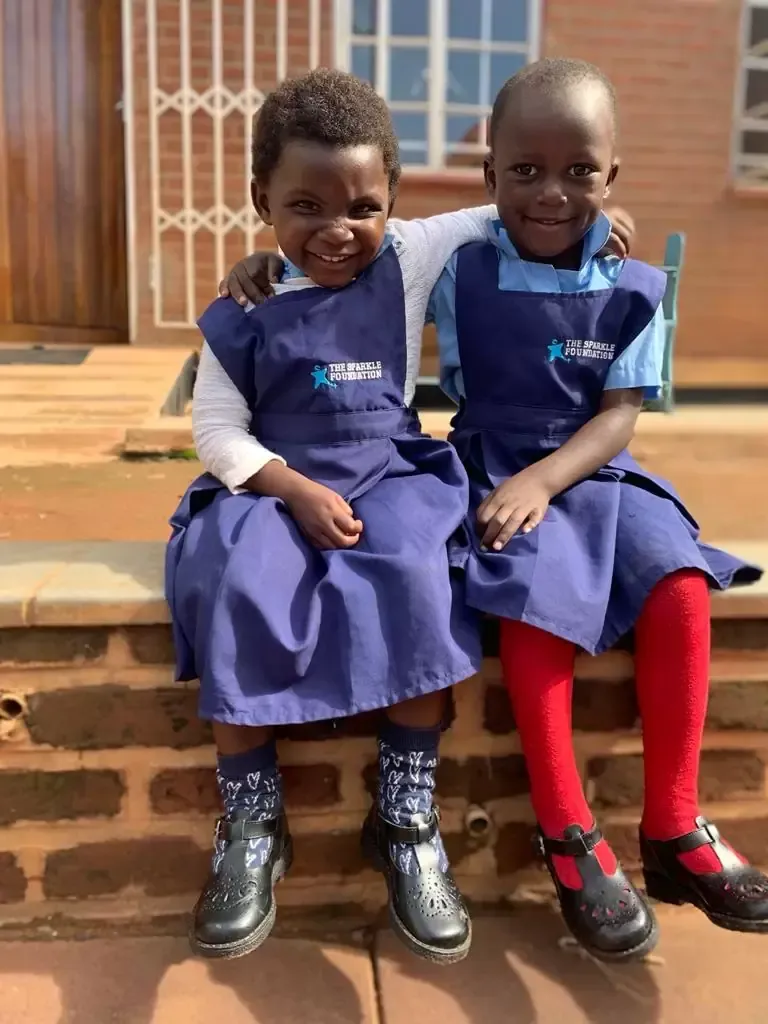If you couldn’t afford shoes, would you go to school? | The effects of uniform on attendance
Here’s an important question that is rarely asked: If you didn’t have school shoes or a uniform, would you still go to school?

Children who are excluded from learning opportunities are among the most vulnerable in the world. They come from the poorest households and often must work to help support their families. Most often they are girls. Sadly, the absence of a pair of shoes or a school uniform can be a barrier to education in many low-income nations. In 2018, the World Bank reported a case study in which an NGO in Kenya provided free uniforms to primary school children. At the beginning of the programme, the average child was missing one day of school every week, with absenteeism at 20%. However, providing free school uniforms decreased absenteeism by 7% (to 13%). Notably, for the poorest children, absenteeism fell by more than half.
Sparkle understands the significance of a uniform. We recently acquired uniforms for all the 206 children who receive care at our site, which after years of using old and mismatched uniforms, was a welcome change. Not only does this affect a parent’s confidence when sending their child to school, but it also makes a child “feel as if they belong” – Julia, five years old. We realized that the need for school shoes was an overlooked necessity within Malawi. We have learned that new shoes are one of the first steps out of poverty for vulnerable children and families.
Buckner Charity provides a service donating shoes to orphans and their research confirms that shoes are often the most difficult item to get hold of in materially poor communities. It is possible to make clothes; grow food, and even use water filters to produce clean water, but it is relatively difficult to make a pair of durable shoes. Also, for many children around the world, a pair of shoes can be the difference between a hopeful future or a bleak one.
“In so many ways, a pair of shoes is a simple thing. It’s a simple answer to pressing health crises, an opportunity to go to school and a tangible proof of a child’s infinite worth”
– Dr. Albert Reyes
For the children in and around Sogoja Village, The Sparkle Foundation decided to make a difference! In December 2021, with the generous assistance of one of our partners, European Business Centre based in Malawi, 206 pairs of new school shoes were donated!
This has already made a huge difference in the lives of so many children. They have safe shoes to walk to school in and many no longer have to wear sandals or flip flops. Additionally, there is a genuine sense of pride expressed by the parents knowing that all the children look the same – every child is there to learn.
Mrs Mittochi is the Chief of Kulupiya village and her granddaughter is one of the Sparkle Foundation’s beneficiaries. She has attended the nursery since 2019. When the chief heard about the donation of school shoes from the European Business Centre, she couldn’t believe it. She said:
“The school shoes are so expensive; I checked the price in the Bata shoe shop when I was purchasing a plastic pair of shoes. The amount is enough to buy two 50 kg bags of maize. Thank you Sparkle, my granddaughter is now looking so good. It is gestures like this that make children want to come to school. This is so important because it is education which will change the future of Malawi.”
Please note that Sparkle is unable to accept clothes and shoes sent from abroad, as this would be an unsustainable form of donation. However, donations by in-country organisations like the European Business Centre are great examples of how organisations can support each other.
A huge shout out with many, many thanks to the staff at the European Business Centre!!







